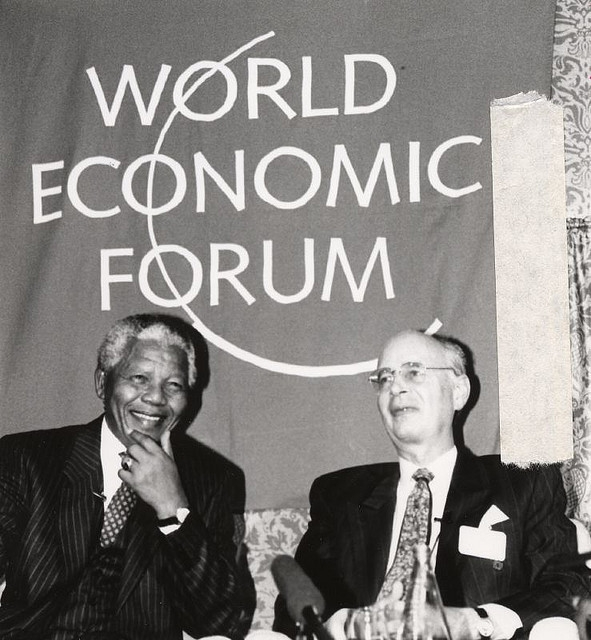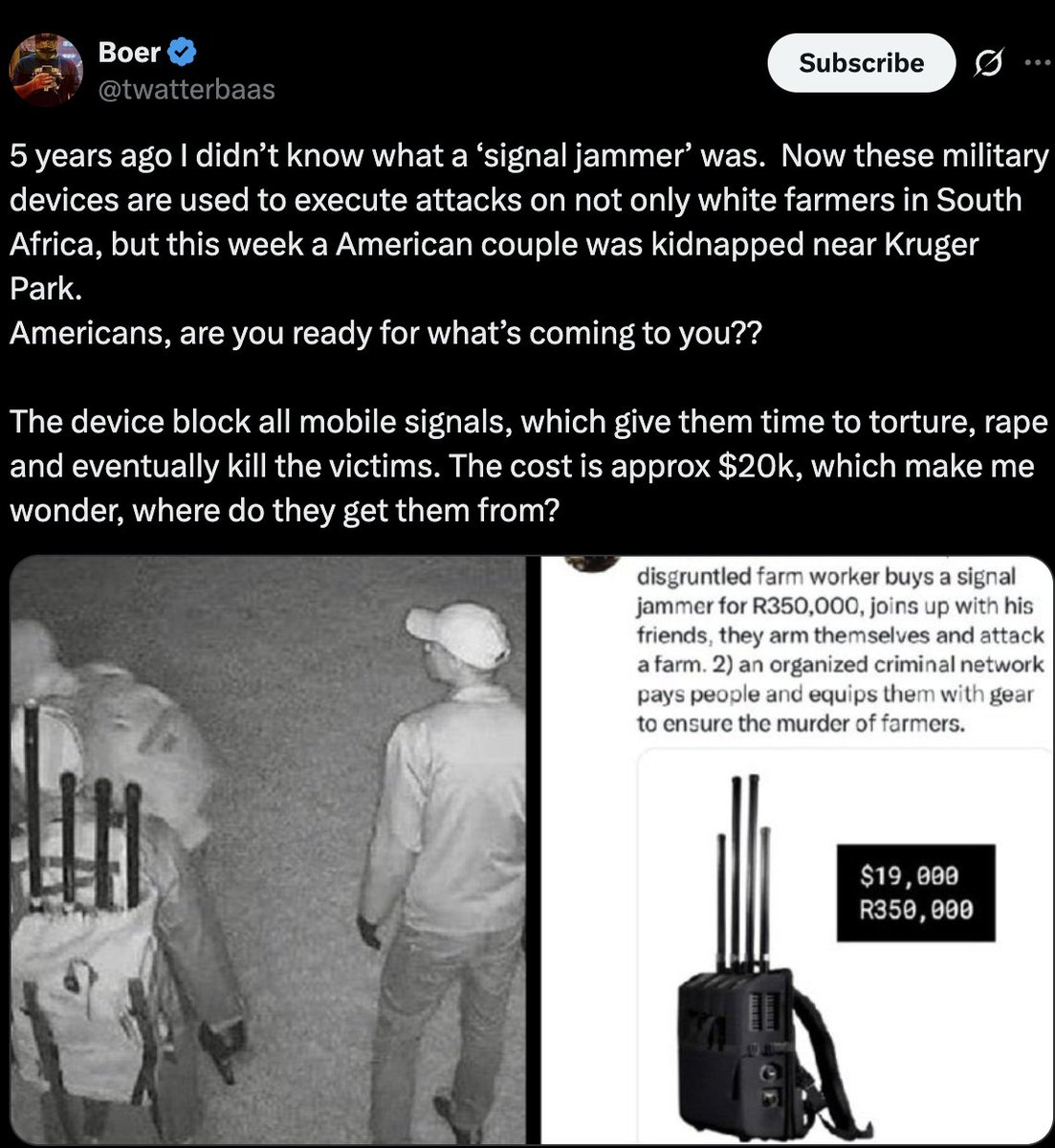I think the Trump McDonald's visit hit home with so many is that it was a glimmer of nobility, of a time of hierarchy and noblesse oblige rather than the usual American politician thing of pretending to be a prole, as shown by what he wore
A short 🧵👇
A short 🧵👇

This is actually something that Trump is quite good at
Unlike all the other American politicians who dress in flannel when they want to look like a country person, t-shirts when they want to look casual, and a suit when they want to look formal, Trump just wears his suit
He's not lower class. He's not middle class. He's not upper-middle class. He's a billionaire, the upper part of the upper class.
As such, he doesn't wear casual clothes. He wears what he should wear, a suit and tie with French cuffs and polished black shoes, at all times, unless he's playing golf or tennis, when the specific clothing for that sport is more appropriate
Unlike all the other American politicians who dress in flannel when they want to look like a country person, t-shirts when they want to look casual, and a suit when they want to look formal, Trump just wears his suit
He's not lower class. He's not middle class. He's not upper-middle class. He's a billionaire, the upper part of the upper class.
As such, he doesn't wear casual clothes. He wears what he should wear, a suit and tie with French cuffs and polished black shoes, at all times, unless he's playing golf or tennis, when the specific clothing for that sport is more appropriate

There are few people who still do that, the only real example is the old-title slice of the British peerage and the monarchy, along with some other aristocracies and monarchies abroad; you never see them in something other than a suit, unless it's more appropriate to be in something else

In fact, it's only when they've fallen and degraded that they stop doing that
Harry, for example, now that he's married to a race communist, dresses down, much unlike his father and brother
Notably, he started doing that once he moved to democratic America and shunned his noble roots
Harry, for example, now that he's married to a race communist, dresses down, much unlike his father and brother
Notably, he started doing that once he moved to democratic America and shunned his noble roots

All that is to say, those members of the upper strata who are self-confident and live according to tradition and duty don't feel the need to dress down to appeal to "democracy"
There's no point to that, it's nonsense, and everyone sees through it
But most of America's billionaires dress down to try to look like the "common man"
It's weird and offputting
There's no point to that, it's nonsense, and everyone sees through it
But most of America's billionaires dress down to try to look like the "common man"
It's weird and offputting

Trump doesn't do that. He dresses like he ought
More importantly, he acts like it too
He doesn't pretend to be a random peon. He, instead, acts in a self-confident way. Further, he doesn't condescend; he treated those around him, as he should, as people whose lives and jobs are worthy of respect and consideration rather than looking down on them. He joked with them, put them at ease, and respected their work, without seeming like an ass as he did so
Meanwhile, his enemies spent 24 hours mocking the job and those who do it, all while pretending to represent the "common man"
More importantly, he acts like it too
He doesn't pretend to be a random peon. He, instead, acts in a self-confident way. Further, he doesn't condescend; he treated those around him, as he should, as people whose lives and jobs are worthy of respect and consideration rather than looking down on them. He joked with them, put them at ease, and respected their work, without seeming like an ass as he did so
Meanwhile, his enemies spent 24 hours mocking the job and those who do it, all while pretending to represent the "common man"

The thing is, Trump's mode of acting is quite old, whereas the hate directed his way is quite new
It is, really, the conflict between gentry/aristocracy and managerialism, the conflict between the old world and new, bureaucratic world
Trump is acting, as suggested by his self-confident bearing and dress, like the old, whereas his enemies very much represent the new
It is, really, the conflict between gentry/aristocracy and managerialism, the conflict between the old world and new, bureaucratic world
Trump is acting, as suggested by his self-confident bearing and dress, like the old, whereas his enemies very much represent the new

The old is, broadly, the country squire
The local man of "quality" who hunted and lived in a country house rather than a little cottage, but who knew his tenants and who would have his servants serve those farmers a glass of beer or cider when they stopped by, who hosted coming of age parties and similar events in which he would invite the whole village over
That squire didn't pretend to be a "normal working man." He wore a frock coat and top boots rather than working clothes, drank wine rather than beer, and spent his time outdoors hunting the fox and shooting the pheasant rather than digging ditches or farming fields
But he also knew those who were under him and helped his community. It was a hierarchy at which he sat toward the top and acted the part, but in which there was also a sense of responsibility toward those below
You still see this in King Charles III being, as @JohannKurtz recently pointed out on my podcast with him, someone who advocates for issues like regenerative agriculture and classical architecture that serve the people and beautify their lives. Notably he does that while acting like a royal rather than dressing down and pretending to be on of his subjects, much as Trump always acts like a billionaire.
The local man of "quality" who hunted and lived in a country house rather than a little cottage, but who knew his tenants and who would have his servants serve those farmers a glass of beer or cider when they stopped by, who hosted coming of age parties and similar events in which he would invite the whole village over
That squire didn't pretend to be a "normal working man." He wore a frock coat and top boots rather than working clothes, drank wine rather than beer, and spent his time outdoors hunting the fox and shooting the pheasant rather than digging ditches or farming fields
But he also knew those who were under him and helped his community. It was a hierarchy at which he sat toward the top and acted the part, but in which there was also a sense of responsibility toward those below
You still see this in King Charles III being, as @JohannKurtz recently pointed out on my podcast with him, someone who advocates for issues like regenerative agriculture and classical architecture that serve the people and beautify their lives. Notably he does that while acting like a royal rather than dressing down and pretending to be on of his subjects, much as Trump always acts like a billionaire.

Not so much today
Today, instead of having gentlemen in charge, we have bureaucrats and managers
Those bureaucrat and managers don't live around or have any idea about normal people, even those working under them. They never do the work, never see the work, and avoid those who do the work as best they're able, all while feigning a sense of total, unearned superiority to them
So you get people running a company who have no idea how it actually operates and the work gets done, people sending soldiers to die who never even knew a soldier, much less fought as one, and those who constantly pretend to be "normal" while nursing a constantly aggrieved sense of superiority
You saw this in the leftist outrage that Trump had an easy time packing fries at McDonald's; to them, such a job is so foreign as to be both seen as impossible and utterly derided at the same time
Today, instead of having gentlemen in charge, we have bureaucrats and managers
Those bureaucrat and managers don't live around or have any idea about normal people, even those working under them. They never do the work, never see the work, and avoid those who do the work as best they're able, all while feigning a sense of total, unearned superiority to them
So you get people running a company who have no idea how it actually operates and the work gets done, people sending soldiers to die who never even knew a soldier, much less fought as one, and those who constantly pretend to be "normal" while nursing a constantly aggrieved sense of superiority
You saw this in the leftist outrage that Trump had an easy time packing fries at McDonald's; to them, such a job is so foreign as to be both seen as impossible and utterly derided at the same time

That's not Trump
He's always in a suit but also was known for walking around his job sites and having an easy camaraderie with the men working them, something otherwise entirely foreign to our government but which Trump was still like when in office
And when he was at McDonald's
He's always in a suit but also was known for walking around his job sites and having an easy camaraderie with the men working them, something otherwise entirely foreign to our government but which Trump was still like when in office
And when he was at McDonald's

So, Trump didn't feel the need to condescend by dressing down
He just took off his jacket, put on his apron, and had an easy time with those around him
There was no lurking sense of inferiority and belief of superiority that manifested in tiresome resentment, something you see with the rest of the managerial class and which manifests in billionaires wearing t-shirts
He just took off his jacket, put on his apron, and had an easy time with those around him
There was no lurking sense of inferiority and belief of superiority that manifested in tiresome resentment, something you see with the rest of the managerial class and which manifests in billionaires wearing t-shirts

I think it's interesting that Trump intuitively represents the old despite being mostly a new man, and that because of it, he has easy camaraderie with those around him and who is more popular than any other American president, or even politician, in recent memory
He;s not fake
He;s not fake

I don’t think think this thread was as coherent as I intended it. For those who read with confusion, my central point is this: Americans do r like phonies. They like real men who behave as they ought, even if that initially seems out of place, like cufflinks at a fryer. It’s honest, and thus good, much like the aristocratic order was honest about what it was about. That makes for camaraderie across social classes, as Trump shows, in an honest way that our bureaucratic overlords and their system are entirely devoid of.
I think Trump also cares about those with whom he meets, and wants their levies to be better. Further he has a sense of needing to use his wealth and resources to effect that, but in an aristocratic rather than philanthropic way. Hence the noblesse oblige comment
Sorry if that wasn’t stated well
I think Trump also cares about those with whom he meets, and wants their levies to be better. Further he has a sense of needing to use his wealth and resources to effect that, but in an aristocratic rather than philanthropic way. Hence the noblesse oblige comment
Sorry if that wasn’t stated well
Read about the civilizational consequences on bureaucratic rule here, in my filler thoughts on the subject: theamericantribune.news/p/the-death-of…
I would add, though, that Elon wears the tech billionaire outfit, which is a calculated one and symbolizes that vaguely egalitarian worldview that they try to present, even if they do t believe it
I think he’s working in overcoming that view, so we’ll see if the outfit changes too
I think he’s working in overcoming that view, so we’ll see if the outfit changes too
• • •
Missing some Tweet in this thread? You can try to
force a refresh


















